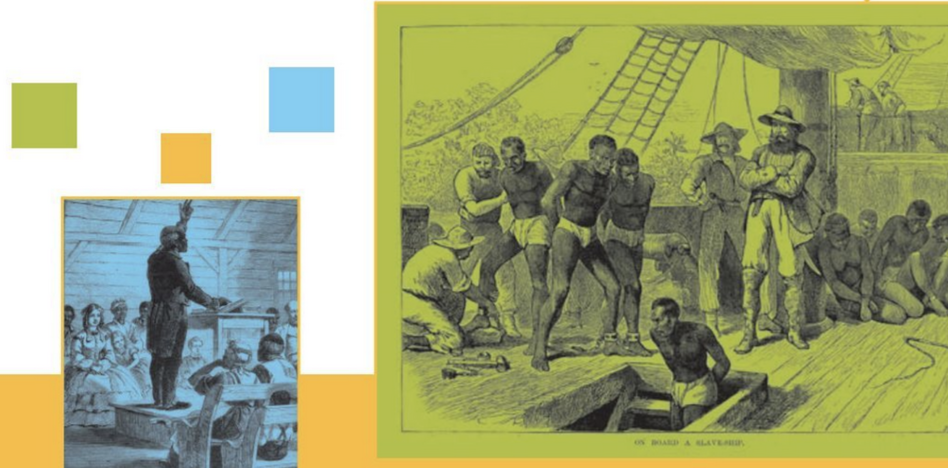Category: Databases
-

BHM #23 – Entertainment Industry Magazine Archive (1880 – 2020)
—
by
An archival research resource containing the essential primary sources for studying the history of the film and entertainment industries, from the era of vaudeville and silent movies through to the 21st century. The core US and UK popular and trade magazines covering film, music, broadcasting, theatre and video gaming are included, together with film fan…
-

BHM #22 – Federal surveillance of African Americans, 1920-1984
—
by
Federal Surveillance of African Americans, 1920-1984 Throughout the twentieth century Black Americans of all political persuasions were subject to federal scrutiny, harassment, and prosecution. The Federal Bureau of Investigation enlisted black “confidential special informants” to infiltrate a variety of organizations. Hundreds of documents in this collection were originated by such operatives. The reports provide a…
-

BHM #21 – Slavery and the Law
—
by
Another robust collection within ProQuest’s History Vault providing primary source materials from digitized archival collections is Slavery and the Law. This database features petitions on race, slavery, and free blacks that were submitted to state legislatures and county courthouses between 1775 and 1867. These petitions were collected by Loren Schweninger over a four-year period from…
-

BHM #20 – Southern Life and African American History
—
by
This collection is part of ProQuest’s History Vault providing primary source materials from digitized archival collections. The Plantation Records in this module documents the far-reaching impact of plantations on both the American South and the nation. As business owners, the commodities produced by plantation owners—rice, cotton, sugar, tobacco, hemp, and others— accounted for more than half of…
-
BHM #19 – Reconstruction and Military Government after the Civil War (1865-1877)
—
by
Reconstruction and Military Government after the Civil War (1865-1877) From heart-wrenching personal letters to bills of lading for office supplies, this module offers remarkable insight into the early Reconstruction period in the American South. The correspondence of the U.S. Army’s Office of Civil Affairs reveals efforts to foster democracy and rebuild communities in the divided…
-
BHM #18 – Southern Negro Youth Congress and the Communist Party: Papers of James and Esther Cooper Jackson
—
by
Southern Negro Youth Congress and the Communist Party: Papers of James and Esther Cooper Jackson Who were James and Esther Cooper Jackson?? James Jackson (1914-2007) and Esther Cooper Jackson (1917-2022) were a married African American couple who devoted their lives to fight for equality. The Jacksons saw a path to racial equality through the Communist…
-

BHM #17 – Black Studies Center
—
by
Black Studies Center – This fascinating collection includes… Almost 2,000 videos and images, from Langston Hughes’s performance of “The Weary Blues” with jazz accompaniment in 1950 to Roy Wilkins speaking about Civil Rights issues in 2014. Articles from reference sources including The Routledge Encyclopedia of African Literature, The Handbook of African American Literature, and selections…
-

BHM #16 – FBI Confidential Files and Radical Politics in the U.S., 1945-1972
—
by
Under the leadership of J. Edgar Hoover, the FBI vigorously investigated and tracked the activities of Communist groups, Communist-front groups, and other radical organizations in the United States. This module consists of records of the FBI and the Subversive Activities Control Board from 1945-1972. Highlights of this module include J. Edgar Hoover’s office files; documentation…
-

BHM #15 – Race Relations in America
—
by
Race Relations in America – This primary source collection from Adam Matthews offers… Over 100 hours of audio recordings – speeches, panel discussions, dictations of reports, and the narration of the film slideshows ‘Of a New Day Begun’ and ‘Rebirth in Roxbury’ Images organized into thematic galleries such as Arts and Culture, Civil Rights, Education…
-
BHM #14 – “We were prepared for the possibility of death …”
—
by
“We were prepared for the possibility of death” Freedom Riders in the South, 1961 Another primary source from Archives Unbound, this collection is sourced from the FBI. It includes documents from 1961 when civil rights activists, “Freedom Riders”, rode interstate buses into the segregated South to test the United States Supreme Court decision in Boynton…